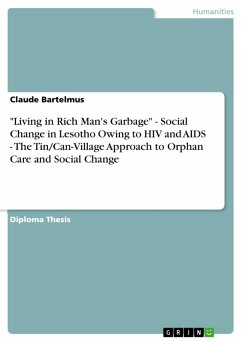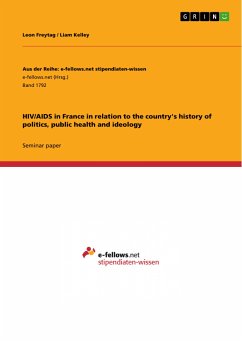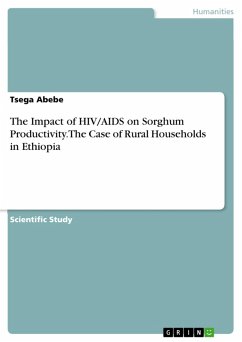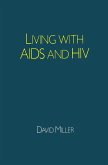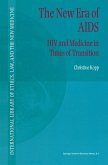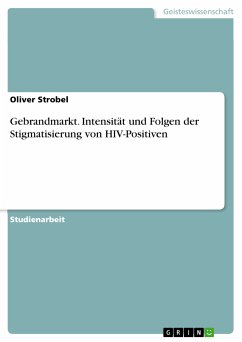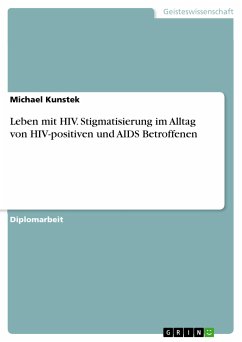Diploma Thesis from the year 2004 in the subject Sociology - Culture, Technology, Peoples / Nations, grade: 1,9, Free University of Berlin (Institut für Soziologie), language: English, abstract: Introduction This paper discusses social change within Lesotho's society and its response in regard to the increasing number of children orphaned by HIV and AIDS. Social change in Lesotho is analyzed and compared with conventional social-science theories, including recommendations for further actions. A recently registered local non-governmental organization (NGO), the Thlokomelo Society, is taken as an example to demonstrate the complex situation of HIV and AIDS and orphan-care in Lesotho. Lesotho is a small mountainous kingdom entirely surrounded by The Republic of South Africa (RSA). Since independence in 1966, the country has experimented with various forms of government, which have all been characterized by political instability. However, Lesotho has recently moved significantly towards democracy, and international observers declared the general elections in 2002 as both free and fair. Lesotho has scarcely any natural resources, and those available are inefficiently used. The economy is highly dependent on RSA. Development in the country is hampered by the lack of any feasible agricultural or industrial base and the brain and labor drain into RSA. Like other developing countries in southern Africa, Lesotho is currently experiencing a food crisis made worse by the impact of the prevailing HIV and AIDS pandemic. Lesotho is facing an HIV and AIDS crisis of tremendous proportions. The pandemic is regarded as a principal obstacle in combating poverty and promoting sustainable human development. With almost one third of the adult population infected with HIV, Lesotho has the fourth highest prevalence rate in the world. Among the 49 least-developed countries (LDC) - classified by the United Nations (UN) as particularly poor and vulnerable - Lesotho ranks first. In other words, no other country in the world is as underdeveloped and, at the same time, faced with an HIV and AIDS crisis of comparable magnitude. According to the UNAIDS Report on the Global HIV and AIDS Epidemic, an estimated five million people around the world became infected in 2001, 800,000 of whom were children. Over the next decade, without effective treatment and care they will join the ranks of the more than 20 million people who have died of AIDS since the first clinical evidence of HIV and AIDS was reported in 1981. Almost half a generation is going to die in the future because of AIDS. As stated by the UNAIDS Report the climax will take place around 2010.
Dieser Download kann aus rechtlichen Gründen nur mit Rechnungsadresse in A, B, BG, CY, CZ, D, DK, EW, E, FIN, F, GR, HR, H, IRL, I, LT, L, LR, M, NL, PL, P, R, S, SLO, SK ausgeliefert werden.

